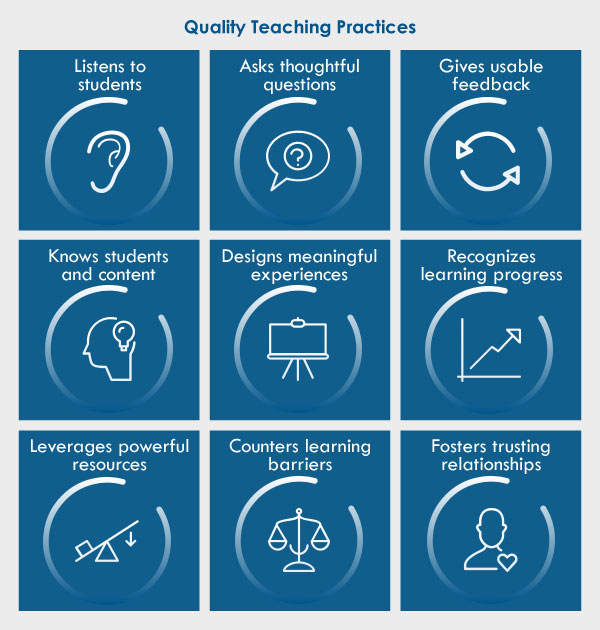
Title I Impact
CTAC assists schools and districts in using Title I funding strategically to better meet the needs of students. Our Title I targeted services support schools and districts in reaching their immediate learning acceleration goals while simultaneously planning for long-term improvements.
Utilizing Title I in Innovative Ways
Districts and schools often underutilize Title I, designating the funds for many of the same uses year after year—regardless of results. CTAC’s Title I services help districts and schools maximize the flexibilities provided in Title I to address the escalating needs of their students.
CTAC assists in using Title I to:
- Unleash creativity to design learning environments which better address student needs
- Develop the expertise of teachers and school leaders to accelerate learning
- Engage parents as equal partners in school improvement
Services to Advance the Impact of Title I
School design matters for students. There are common elements that the most effective schools share.
CTAC assists schools to put in place the conditions that lead to student success. Schools that champion student aspirations and accomplishments are able to:
CTAC helps schools and districts use school design to accelerate learning and achieve dramatic results for students. We use design methods proven successful in the education, community development and corporate sectors. We focus on addressing the causes, not the symptoms, of school underperformance. CTAC’s services are intentionally collaborative; we engage the broader school community and promote local innovation.
CTAC assists schools to put in place the conditions that lead to student success. Schools that champion student aspirations and accomplishments are able to:
- Unify the school community around a shared purpose and criteria for success
- Personalize learning by using student voice to inform instruction
- Engage teachers in a professional culture that advances excellence in instruction
- Provide students with captivating curricular content
- Cultivate caring relationships among students and between students and adults
- Ensure families are equal partners in fulfilling the school’s mission
CTAC helps schools and districts use school design to accelerate learning and achieve dramatic results for students. We use design methods proven successful in the education, community development and corporate sectors. We focus on addressing the causes, not the symptoms, of school underperformance. CTAC’s services are intentionally collaborative; we engage the broader school community and promote local innovation.
The best investment you can make is in your teachers. Improving classroom instruction is the most effective way for schools to increase student achievement. CTAC assists schools and districts to develop the instructional skills of teachers to effectively teach all students.
CTAC’s Quality Teaching Practices (QTPs) are high-leverage, evidence-based practices that an effective teacher uses on a daily basis. CTAC’s approach to teacher professional development simplifies learning around the essence of what it takes to teach well.
Our training emphasizes proven teaching practices that can be customized and applied in any classroom. We focus on these instructional practices because they enable teachers to:

CTAC’s Quality Teaching Practices (QTPs) are high-leverage, evidence-based practices that an effective teacher uses on a daily basis. CTAC’s approach to teacher professional development simplifies learning around the essence of what it takes to teach well.
Our training emphasizes proven teaching practices that can be customized and applied in any classroom. We focus on these instructional practices because they enable teachers to:
- Enhance everyday interactions with students
- Make curricular content engaging
- Increase their knowledge of students’ academic, social, and emotional progress
- Create a context for accelerated, equitable learning.
School leadership matters. Strong principals have a clear impact on student outcomes. CTAC provides the comprehensive, field-proven support needed to build the capacity of principals at every stage of their career.
Great school leaders drive continuous improvement in teaching and learning, while also creating organizational cultures conducive to real change and innovation. CTAC’s services focus on developing principals’ skills in the three areas which have the greatest impact on student learning.
CTAC’s assistance builds the capacity of principals to:
Great school leaders drive continuous improvement in teaching and learning, while also creating organizational cultures conducive to real change and innovation. CTAC’s services focus on developing principals’ skills in the three areas which have the greatest impact on student learning.
CTAC’s assistance builds the capacity of principals to:
- Provide strong instructional leadership. CTAC’s assistance strengthens principals’ ability to recognize and communicate the elements of high-quality instruction. They develop professional learning systems in their schools that strengthen teacher pedagogy. Principals are better able to identify and establish direct responses to students’ unmet academic and non-academic needs.
- Cultivate teacher leaders. CTAC’s assistance helps principals to engage teachers in meaningful decision-making about curriculum, conduct and culture. Principals gain understanding in how to guide their staff in ways which harness their talents in service of students and develop their career progressions.
- Engage families. CTAC’s assistance enables principals to actively include families as equal partners in school improvement. Principals are more effective in ensuring clear and consistent two-way communication to build a broad and effective base in support of the school’s mission.
It serves the best interests of students and educators when parental perspectives inform school improvement efforts. Schools need the capacity to actively involve parents and engage in two-way communication with the goal of advancing student learning.
Everyone affected by the school needs to be involved in school improvement planning. The experiences and perspectives of parents, particularly those often underrepresented in planning processes, are key to understanding conditions at the schools that impede or advance student progress.
CTAC builds the capacity of schools and districts to engage parents in their rightful role as equal partners in school improvement. We train school leaders, teachers and parents together to:
Everyone affected by the school needs to be involved in school improvement planning. The experiences and perspectives of parents, particularly those often underrepresented in planning processes, are key to understanding conditions at the schools that impede or advance student progress.
CTAC builds the capacity of schools and districts to engage parents in their rightful role as equal partners in school improvement. We train school leaders, teachers and parents together to:
- Assess organizational conditions affecting students’ academic, social and emotional learning
- Build shared understanding of curricular, instructional, and assessment strategies
- Ensure school staff understand the family-school experiences which contribute to student learning
- Understand the social-emotional needs of students, staff, and parents
- Focus the school culture on student learning, instructional improvement and real partnership
